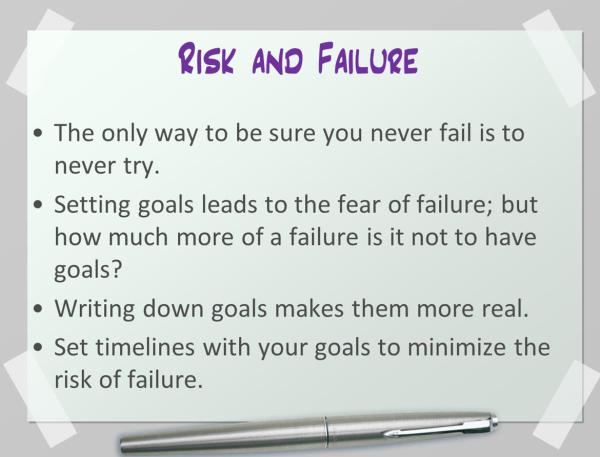Write: “Stealing” Writing Time and Revisiting Your Goals #ReadySetWrite
 When we’re trying to get a first draft written on a tight deadline, we sometimes get into a panic mode that time is slipping away from us.
When we’re trying to get a first draft written on a tight deadline, we sometimes get into a panic mode that time is slipping away from us.
This is one of the main reasons I have trouble attending music concerts now—after years of being on tight deadlines from publishers (three manuscripts of 90,000+ words each per year), my brain was retrained to think that any time I was sitting and “doing nothing” was time wasted. Someone mentioned to me today that an artist I like is coming to Nashville soon for a concert (well, tickets are on sale soon—she’s not really going to be here that soon). And my immediate thought was: I don’t think I’d be able to write during that kind of concert. And I’m not even writing on a deadline right now!
Redeeming, a.k.a. “Stealing,” Writing Time
Back when I was a full-time writer/editor and was traveling quite a lot (I logged an average of 7,500 miles each of those four years for writing events/workshops, book signings, and conferences), I redeemed/stole the travel time by writing in the car. Yes, when I was driving—by using the voice recognition software built into Windows 7 (with Office ’07, before they screwed it up in Office ’10) to dictate my story into text. (Revisions afterward were quite interesting, especially when I got to parts where the computer hadn’t understood what I was saying and, even reading it aloud and trying to figure out what the words the computer wrote down sounded like, I couldn’t remember what I’d been saying.)
More recently, it’s stealing time on my lunch break at work, whether it’s bringing my laptop or Surface with me and doing it deliberately or grabbing some scrap paper off the recycle pile and scribbling like mad to get an idea down before it disappears (and then carrying those pages, folded up, around in my purse for weeks until I remember I did that and need to type them into the computer at home).
While technology (cell phone with Quick Office, a Surface tablet with the full Office suite) makes writing in any situation/location easy—for example, as I’ve sat in the waiting room at too many different medical-type offices recently—sometimes I just can’t be hunched over my phone or tablet, such as in a meeting at work or at a music event/venue. Sometimes, it does mean just grabbing the nearest paper-like substance and a writing utensil and making do.
And sometimes, it’s forcing myself to spend time brainstorming and thinking through where my story is going—like when I’m on the treadmill. I’ll just plug my earbuds into my ears in without any music playing (to block auditory distractions) and then make myself think about my characters and story as I’m walking. I did this ten years ago when working on Stand-In Groom, except then I was swimming for exercise. In the middle of a lap, I came up from the water gasping from just having hatched the idea of George’s secret-identity plot (imagine my explaining that to the lifeguard!).
As I’ve stated in another post, everywhere is a good place to brainstorm (or write). But how often do we either recognize and/or utilize the opportunity to “steal” that time and actually use it for writing?
Revisiting Your Writing Goals
One of the reasons I always preach setting—and writing down—specific, actionable goals, both short-term and long-term, for a manuscript is so that along the way, you can go back and revisit those goals and mark off the ones you’ve accomplished.
But the biggest fear about setting specific goals for our writing is the fear of failure—the fear of not meeting those goals.
As we went over in the Goals vs. Dreams series last year:
Remember, it may be your dream to be a published author; it’s your goal to do all of the work that gives you the ability to chase that dream. And if you do the work, if you write the manuscripts, work with critique partners, go to conferences and workshops, rewrite and revise, edit and re-edit, do your market research, enter contests, network, and get those appointments to pitch your work, then you’re successful. Because you’ve met all of your goals, and you’ve done everything you can to chase your dream.
But what if you discover that your goals/timeline have changed?
Just because you’ve written down your goals and timeline—and maybe even shared it with others—only means that you’ve given yourself the opportunity to be constantly re-evaluating, double-checking, and changing them as necessary to customize them to the real-life task of actually writing your first draft. Now, that doesn’t mean that you allow yourself to just keep putting things off or allowing yourself to procrastinate and not get things done.
If the artist works only when he feels like it, he’s not apt to build up much of a body of work. Inspiration far more often comes during the work than before it, because the largest part of the job of the artist is to listen to the work, and to go where it tells him to go. Ultimately, when you are writing, you stop thinking and write what you hear.
(L’Engle, p. 149)
Procrastination is a really slippery slope: I don’t feel like writing today, so I’ll double up tomorrow.
And then tomorrow: I don’t feel like writing today, but I can get three days worth of words written tomorrow.
And soon, you’re pressed up against your deadline (whether it’s self-imposed or external) and you’re having to write 28,000 words over Thanksgiving week to make your deadline. (Hello, Ransome’s Crossing.) Or you’re sitting on about 22,000 words with forty-four days in which to write the remaining 83,000 words. (Hello, Ransome’s Quest.)
And, yes, those examples were publisher/contract-imposed deadlines. But what good is setting goals and putting yourself on a timeline to get your draft finished if not to train yourself to become a professional/published author?
Use the process of revisiting your goals and timeline as motivation to keep moving forward with your first draft.
After all, in the words of the inimitable Harold Hill:
“You pile up enough tomorrows,
and you’ll find you are left with
nothing but a lot of empty yesterdays.”
(The Music Man)
__________________________________________
Works Cited:
L’Engle, Madeleine. Walking on Water: Reflections on Faith and Art. Wheaton, IL: Harold Shaw Publishers, 1980. Print.
Music Man, The. Dir. Morton DaCosta. Warner Bros. 1962. Film.


Trackbacks
Comments are closed.